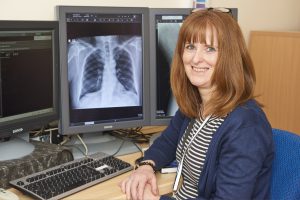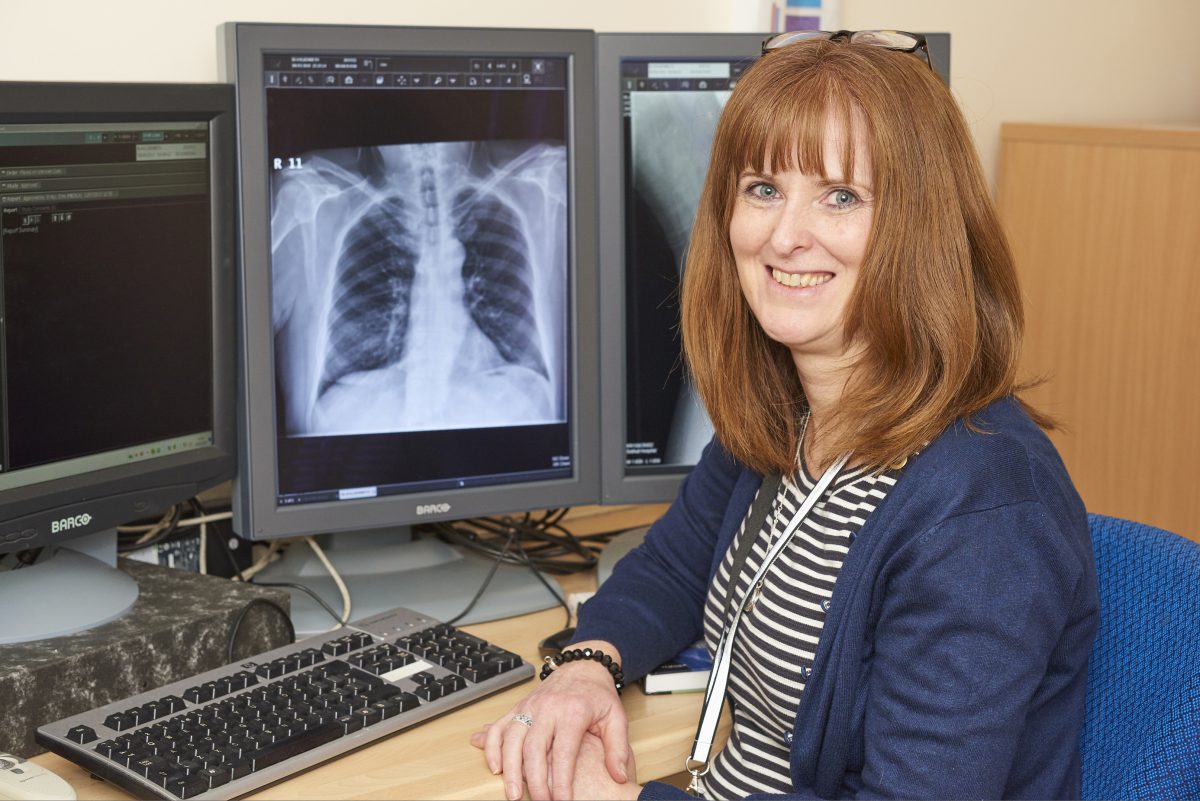 We have appointed our first consultant radiographer in a forward thinking move aimed at benefiting both patients and staff. Louise Small, who has worked at all of the three HGS hospital sites over the years before becoming a university lecturer, returned to the Trust to take on the exciting new role in January.
We have appointed our first consultant radiographer in a forward thinking move aimed at benefiting both patients and staff. Louise Small, who has worked at all of the three HGS hospital sites over the years before becoming a university lecturer, returned to the Trust to take on the exciting new role in January.
The role – which is a new one – is aimed at boosting and developing radiography in the Trust. As part of her role she is leading a team of 11 plain film reporting radiographers across all of the three HGS sites. She aims to improve report turnaround times for images such as X-rays and help develop the educational side of staff development in conjunction with the department educational leads across all sites. She also aims to work with other professions to develop shared learning between disciplines, keeping the patient at the centre of everything we do.
Louise qualified in 1991 at Selly Oak Hospital and first joined Heartlands Hospital in 1992 as a radiographer. She worked in various radiography departments before joining Birmingham City University as a lecturer in radiography and then as post graduate programme director. At BCU she
gained her Masters in Education and PG Dip in image reporting.
She joined Royal Wolverhampton NHS Trust as a consultant radiographer at New Cross Hospital in 2016. When she saw that we were recruiting our first plain image consultant radiographer she thought it was too good a chance to miss. She said:
“I wanted the job because it was the first post of its type in Birmingham and it was across a bigger trust – I thought you have to grab these opportunities when they
come up.”
She is looking forward to the challenges of her new role.
“For me, my role is to help improve the service, improve quality, and to help increase the research profile in radiography. I want to work with radiographers and staff in other departments to improve radiography education. I also want to see how we can work safely and efficiently together for the good of the patient. I’d like to make patients’ care more seamless and encourage more team working to ensure patients have the best outcome.”
She also wants to maintain the department’s high level of reporting accuracy by continuing the monthly audit of reporting accuracy.
Louise plans to use her university teaching background and experience to aid staff development and is already introducing lunchtime talks for staff. She will work with all staff ranging from undergraduate student radiographers to doctors studying for their plain image interpretation exams as part of their Fellowship of the Royal College of Radiologists.
She is determined her department should not rest on its laurels and always be striving for more improvements. Having a consultant in position should also boost the reputation of the department and raise the profi le of the Trust. She’s already planning to organise special interest groups for radiographers across the West Midlands region.
Louise and her colleagues are also organising accredited study days which will be advertised nationally with aim of attracting a diverse range of health care professionals with an interest in developing their knowledge of image interpretation. Louise is also completing a piece of research looking at the role of clinical history in the valuation of chest radiographs. Once Louise has finished this she hopes to have it published later this year.



